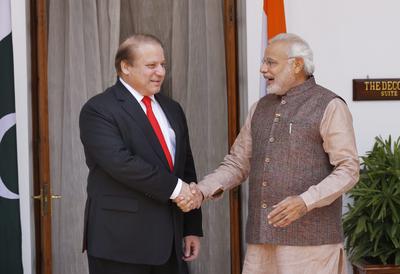There are two factors which point to ample scope for increased India–Pakistan investment cooperation. First, India has emerged as a leading source of foreign investment, accounting for over 90 per cent of intra-regional FDI flows in South Asia. Second, Pakistan’s liberal foreign investment policy, conducive business environment, and young, relatively skilled workforce make it an investor-friendly destination. Pakistan is located at the crossroads of China, the Central Asian republics and the Gulf States, and its large market offers opportunities to Indian investors, who could benefit from the easy access that the country could provide to markets in Iran and Afghanistan, among others.
Now with business-oriented leaders in both countries committed to economic development, and the possible elimination of barriers to trade liberalisation and investment, there is great potential for Pakistan to attract FDI from India.
Pakistan’s foreign investment policy offers several incentives with respect to tax and regulations on capital and profit repatriations. Pakistan has enacted lawsthat allow for special economic zones, and it possesses a large skilled English-speaking labour force. The consumer market in Pakistan is also growing at a rapid pace and there is an abundance of market opportunities that Indian FDI could tap into. Additionally, Indian investment in Pakistan can benefit from several country-specific advantages. Linguistic and cultural similarities between the two countries could immensely facilitate business cooperation. The two Punjabs share the same language, and Sindhi is spoken in both Karachi and Mumbai. There is a certain sense of connection with people across the border. Smooth communication channels help in business interactions by reducing entry and transaction costs.
As India and Pakistan compete to sell their products in the international marketplace, there are areas in which the two countries could complement each other’s needs through joint ventures.
There are a vast number of potential areas for cooperation. Sectors in Pakistan such as agriculture, mining, textiles, pharmaceuticals, transport and energy could reap tremendous benefits from Indian investment. In fact, with energy demand rising in Pakistan, the greatest benefits could accrue from energy cooperation. There is also tremendous scope in the services sector. India has established itself as a major player in the information technology industry. Although the software industry in Pakistan is still in its nascent stages, it could potentially emerge as a major software export and training centre. India and Pakistan could enter into joint ventures to tap the global software market.
For potential investments to bear fruitthere is a need for coherence between policies directed at investment facilitation and business practices. Although India and Pakistan have made considerable progress in liberalising their FDI regimes, implementation problems continue to affect investment flows. Both governments need to address the regulatory and administrative challenges that Pakistan faces in attracting investment from India, and find innovative solutions to increase bilateral investment flows. It is important for businesses on both sides to create multiple channels of communication and engagement to bridge the information gap.
Samridhi Bimal is a researcher at the Indian Council for Research on International Economic Relations, New Delhi. This article is based on her work on ‘Enhancing India-Pakistan Economic Cooperation: Prospects for Indian Investment in Pakistan’, ICRIER Working Paper 274.

